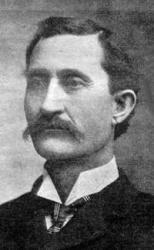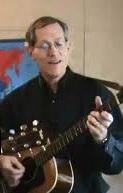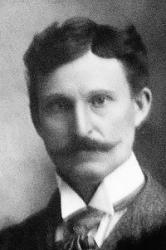Planning worship?
Check out our sister site, ZeteoSearch.org,
for 20+ additional resources related to your search.
- |
User Links
Person Results
‹ Return to hymnal







Export as CSV
Charles Wesley

1707 - 1788 Person Name: Charles Wesley, 1707-1788 Hymnal Number: 59 Author of "Jesus, the Light of the World (We'll Walk in the Light)" in This Far By Faith Charles Wesley, M.A. was the great hymn-writer of the Wesley family, perhaps, taking quantity and quality into consideration, the great hymn-writer of all ages. Charles Wesley was the youngest son and 18th child of Samuel and Susanna Wesley, and was born at Epworth Rectory, Dec. 18, 1707. In 1716 he went to Westminster School, being provided with a home and board by his elder brother Samuel, then usher at the school, until 1721, when he was elected King's Scholar, and as such received his board and education free. In 1726 Charles Wesley was elected to a Westminster studentship at Christ Church, Oxford, where he took his degree in 1729, and became a college tutor. In the early part of the same year his religious impressions were much deepened, and he became one of the first band of "Oxford Methodists."
In 1735 he went with his brother John to Georgia, as secretary to General Oglethorpe, having before he set out received Deacon's and Priest's Orders on two successive Sundays. His stay in Georgia was very short; he returned to England in 1736, and in 1737 came under the influence of Count Zinzendorf and the Moravians, especially of that remarkable man who had so large a share in moulding John Wesley's career, Peter Bonier, and also of a Mr. Bray, a brazier in Little Britain. On Whitsunday, 1737, [sic. 1738] he "found rest to his soul," and in 1738 he became curate to his friend, Mr. Stonehouse, Vicar of Islington, but the opposition of the churchwardens was so great that the Vicar consented that he "should preach in his church no more." Henceforth his work was identified with that of his brother John, and he became an indefatigable itinerant and field preacher. On April 8, 1749, he married Miss Sarah Gwynne. His marriage, unlike that of his brother John, was a most happy one; his wife was accustomed to accompany him on his evangelistic journeys, which were as frequent as ever until the year 1756," when he ceased to itinerate, and mainly devoted himself to the care of the Societies in London and Bristol. Bristol was his headquarters until 1771, when he removed with his family to London, and, besides attending to the Societies, devoted himself much, as he had done in his youth, to the spiritual care of prisoners in Newgate. He had long been troubled about the relations of Methodism to the Church of England, and strongly disapproved of his brother John's "ordinations." Wesley-like, he expressed his disapproval in the most outspoken fashion, but, as in the case of Samuel at an earlier period, the differences between the brothers never led to a breach of friendship. He died in London, March 29, 1788, and was buried in Marylebone churchyard. His brother John was deeply grieved because he would not consent to be interred in the burial-ground of the City Road Chapel, where he had prepared a grave for himself, but Charles said, "I have lived, and I die, in the Communion of the Church of England, and I will be buried in the yard of my parish church." Eight clergymen of the Church of England bore his pall. He had a large family, four of whom survived him; three sons, who all became distinguished in the musical world, and one daughter, who inherited some of her father's poetical genius. The widow and orphans were treated with the greatest kindness and generosity by John Wesley.
As a hymn-writer Charles Wesley was unique. He is said to have written no less than 6500 hymns, and though, of course, in so vast a number some are of unequal merit, it is perfectly marvellous how many there are which rise to the highest degree of excellence. His feelings on every occasion of importance, whether private or public, found their best expression in a hymn. His own conversion, his own marriage, the earthquake panic, the rumours of an invasion from France, the defeat of Prince Charles Edward at Culloden, the Gordon riots, every Festival of the Christian Church, every doctrine of the Christian Faith, striking scenes in Scripture history, striking scenes which came within his own view, the deaths of friends as they passed away, one by one, before him, all furnished occasions for the exercise of his divine gift. Nor must we forget his hymns for little children, a branch of sacred poetry in which the mantle of Dr. Watts seems to have fallen upon him. It would be simply impossible within our space to enumerate even those of the hymns which have become really classical. The saying that a really good hymn is as rare an appearance as that of a comet is falsified by the work of Charles Wesley; for hymns, which are really good in every respect, flowed from his pen in quick succession, and death alone stopped the course of the perennial stream.
It has been the common practice, however for a hundred years or more to ascribe all translations from the German to John Wesley, as he only of the two brothers knew that language; and to assign to Charles Wesley all the original hymns except such as are traceable to John Wesley through his Journals and other works.
The list of 482 original hymns by John and Charles Wesley listed in this Dictionary of Hymnology have formed an important part of Methodist hymnody and show the enormous influence of the Wesleys on the English hymnody of the nineteenth century.
-- Excerpts from John Julian, Dictionary of Hymnology (1907)
==================
Charles Wesley, the son of Samuel Wesley, was born at Epworth, Dec. 18, 1707. He was educated at Westminster School and afterwards at Christ Church, Oxford, where he graduated M.A. In 1735, he took Orders and immediately proceeded with his brother John to Georgia, both being employed as missionaries of the S.P.G. He returned to England in 1736. For many years he engaged with his brother in preaching the Gospel. He died March 29, 1788. To Charles Wesley has been justly assigned the appellation of the "Bard of Methodism." His prominence in hymn writing may be judged from the fact that in the "Wesleyan Hymn Book," 623 of the 770 hymns were written by him; and he published more than thirty poetical works, written either by himself alone, or in conjunction with his brother. The number of his separate hymns is at least five thousand.
--Annotations of the Hymnal, Charles Hutchins, M.A., 1872.
Charles Wesley
Tom Colvin
1925 - 2000 Person Name: Tom Colvin, b. 1925 Hymnal Number: 83 Author of "Jesu, Jesu, Fill Us with Your Love" in This Far By Faith Tom Colvin (b. 1925; d. 2000) was trained as an engineer and worked in that profession in Burma and Singapore from 1945 to 1948. After studying theology at Trinity College, Glasgow University, he was ordained in the Church of Scotland in 1954. He served as missionary in Nyasaland (now Malawi) from 1954 to 1958, in Ghana from 1958 to 1964, and again in Nyasaland from 1964 to 1974. His work there included preaching, education, and community development. After completing his missionary work, Colvin became a minister in the United Reformed Church of England and served an inner-city church in London. He returned to Africa in 1984 as a development consultant to the Zimbabwe Christian Council. Colvin's writings include Christ's Work in Free Africa (1964) and three collections of hymns, many written in collaboration with African Christians–Free to Serve (1966), Leap My Soul (1976), and Fill Us with Your Love (1983).
Bert Polman
Tom Colvin
F. L. Eiland

1860 - 1909 Person Name: F. L. Eliand Hymnal Number: 231 Composer of "GOD'S UNCHANGING HAND" in This Far By Faith Franklin L. Eiland was born in Noxubee county, Miss., March 25, 1860. He was reared on the farm and attended the old field school. The
school house on the hill and the old Oaken Bucket, etc., etc., were objects of interest in his curriculum. He had traveled some before finally leaving home including a trip to Tx, but in 1882 he came to Tx to remain. November 13, 1884 he married Miss Mary E. Nisbett of Robertson county. She lived nine years. In 1894 he married Miss Ella May Kennedy of Van Zandt county. She lived only 10 days. October 21, 1896 he married Miss Minnie Jarushia Valentine of McLennan county. She still survives. They have one sweet little daughter, Mary Ella Oree. She is quite bright and is already starting music at the age of three. Little Elva Lynn came Sept. 16, 1901 and God took her
Aug. 9, 1902. The Eilands have been farmers and professional men along many lines, but Prof. Eiland was the only one that ever embarked in the music business. He was inclined to music from a child and appropriated all the advantages in this line that came his way. Many things of minor importance happened along his life but in 1884 he fell into a meeting conducted by Maj. W. E. Penn, and the superior music rendered there awaked all his latent talent and set him on fire with a desire to make a musician. He at once began a musical career that has attained an abundant success. He soon began teaching and continuing to study to became a composer. He sought the association of those who could teach him and in this and other ways has enjoyed advantages of the best talent to be found. In 1893 he began publishing. From this, came in due time The Trio Music Co. now operated in Waco. Prof. E. is president of the company and editor in chief of the journal. He moved later to Myrtle Springs to secure the benefit of the wonderful waters of those springs. He is given great credit for good influence wielded for his church and community.
From "The Southland", Vol. XII. No. 1, Waco Tx
F. L. Eiland
George Nelson Allen

1812 - 1877 Person Name: George N. Allen, 1812-1877 Hymnal Number: 237 Composer of "MAITLAND" in This Far By Faith George Nelson Allen (1812-1871), studied at Western Reserve Academy in Hudson, Oh OH and with Lowell Mason in Boston. Allen gave a strong musical foundation to Oberlin College in its earliest years; in addition to being Professor of Music he also served as Professor of Geology and Natural History, Secretary and Treasurer. In 1835 he compiled The Oberlin Social and Sabbath Hymn Book, in which appeared his most well known tune MAITLAND (also known as CROSS AND CROWN or WESTERN MELODY) with the text "Must Jesus bear the cross alone?". This was adapted by Thomas A. Dorsey in 1938 for his hymn "Precious Lord, take my hand". hand." He composed anthems and wrote some additional music for Isaac Woodbury's Oratorio "Absalom." He compiled a small 3" x 4" hymnal that every student should keep in his pocket that went through several printings.
Mary Louise VanDyke
George Nelson Allen
Albert Hay Malotte
1895 - 1964 Hymnal Number: 33 Composer of "[Our Father, who art in heaven]" in This Far By Faith
Albert Hay Malotte
Henry Smith

b. 1952 Hymnal Number: 292 Author of "Give Thanks" in This Far By Faith Henry Smith must have seen life this way: God’s side of the equation outweighs whatever is on the opposite side. At least, that’s what the words he wrote indicate. God is the ‘all’ of existence, so that I am called to ‘give thanks’ six times in the song’s opening words. When I’m done here on planet Earth, all that will matter is what lies ahead – in God’s presence. That must have been alluring for Henry Smith, who was struggling to find steady work, despite having just earned his college degree. When he says ‘the poor’ are rich in “Give Thanks”, that’s an echo from his difficulty in finding work. His eyesight was also failing because of a degenerative condition that would eventually leave him legally blind, certainly a ‘weakness’ that he expressed in the song as his eyesight faded. Thankfully, theological training informed him that God’s side of the equals sign was what mattered. And other parts of his life further motivated the song that leapt from his heart. He’d found someone to love, his future wife. And, he was grateful to be through school, which his deteriorating vision had made difficult, and to be back home in a church he loved in Williamsburg, Virginia. If God was all Henry Smith had in 1978, He could be praised, and yet He provided even more. It’s no surprise that Smith’s heart overflowed in a song. And, the song resounds still in Henry Smith’s hometown and around the globe today.
--songscoops.blogspot.com/2010/
Henry Smith
John B. Foley
b. 1939 Person Name: John Foley, b. 1939 Hymnal Number: 122 Author of "One Bread, One Body" in This Far By Faith
John B. Foley
Howard E. Smith

1863 - 1918 Person Name: Howard E. Smith, 1863-1918 Hymnal Number: 188 Composer of "SAFETY" in This Far By Faith
Howard E. Smith
H. T. Burleigh

1866 - 1949 Person Name: Harry T. Burleigh, 1866-1949 Hymnal Number: 214 Arranger of "MCKEE" in This Far By Faith Harry T. Burleigh (b. Erie, PA, 1866; d. Stamford, CT, 1949) began his musical career as a choirboy in St. Paul's Cathedral, Erie, Pennsylvania. He also studied at the National Conservatory of Music, New York City, where he was befriended by Antonín Dvořák and, according to tradition, provided Dvořák with some African American musical themes that became part of Dvořák's New World Symphony. Burleigh composed at least two hundred works but is most remembered for his vocal solo arrangements of African American spirituals. In 1944 Burleigh was honored as a Fellow of the Hymn Society in the United States and Canada.
Bert Polman
H. T. Burleigh
Louis M. Gottschalk

1829 - 1869 Person Name: Louis Moreau Gottschalk, 1829-1869 Hymnal Number: 104 Composer of "MERCY" in This Far By Faith Louis Moreau Gottschalk USA 1829-1869. Born in New Orleans, LA, to a Jewish father and Creole mother, he had six siblings and half-siblings. They lived in a small cottage in New Orleans. He later moved in with relatives (his grandmother and a nurse). He played the piano from an early age and was soon recognized as a prodigy by new Orleans bourgeois establishments. He made a performance debut at the new St. Charles Hotel in 1840. At 13 he left the U.S. And went to Europe with his father, as they realized he needed classical training to fulfill his musical ambitions. The Paris Conservatory rejected him without hearing him play on the grounds of his nationality. Chopin heard him play a concert there and remarked, “Give me your hand, my child, I predict that you will become the king of pianists. Franz Liszt and Charles Valentin Alkan also recognized his extreme talent. He became a composer and piano virtuoso, traveling far and wide performing, first back to the U.S., then Cuba, Puerto Rico, Central and South America. He was taken with music he heard in those places and composed his own. He returned to the States, resting in NJ, then went to New York City. There he mentored a young Venezuelan student, Carreno, and became concerned that she succeed. He was only able to give her a few lessons, yet she would remember him fondly and play his music the rest of her days. A year after meeting Gottschalk, she performed for President Lincoln and went on to become a renowned concern pianist, earning the nickname “Valkyrie of the Piano”. Gottschalk was also interested in art and made connections with notable figures of the New York art world. He traded one of his compositions to his art friend, Frederic Church, for one of Church's landscape paintings. By 1860 Gootschalk had established himself as the best known pianist in the New World. He supported the Union cause during the Civil War and returned to New Orleans only occasionally for concerts. He traveled some 95,000 miles and gave 1000 concerts by 1865. He was forced to leave the U.S. later that year as a result of a scandelous affair with a student at Oakland Female Seminary in Oakland, CA. He never came back to the U.S. He went to South America giving frequent concerts. At one, in Rio de Janeiro, Brazil, he collapsed from yellow fever as he played a concert. He died three weeks later, never recovering from the collapse, possibly from an overdose of quinine or an abdominal infection. He was buried in Brooklyn, NY. Though some of his works were destroyed or disappeared after his death, a number of them remain and have been recorded by various artists.
John Perry
Louis M. Gottschalk


 My Starred Hymns
My Starred Hymns


